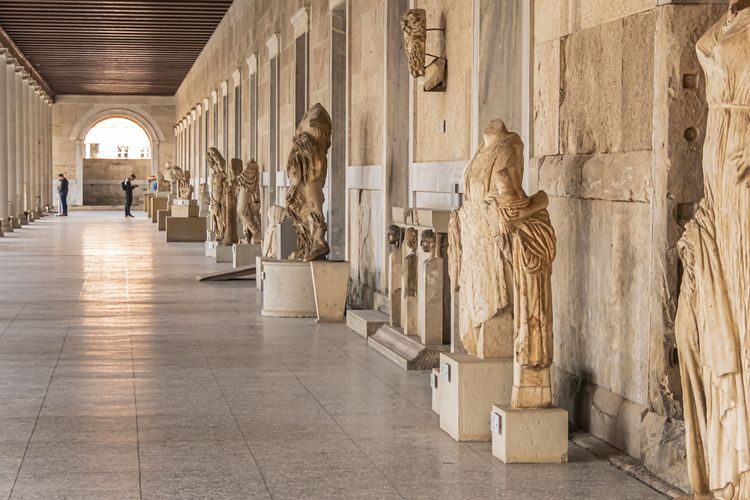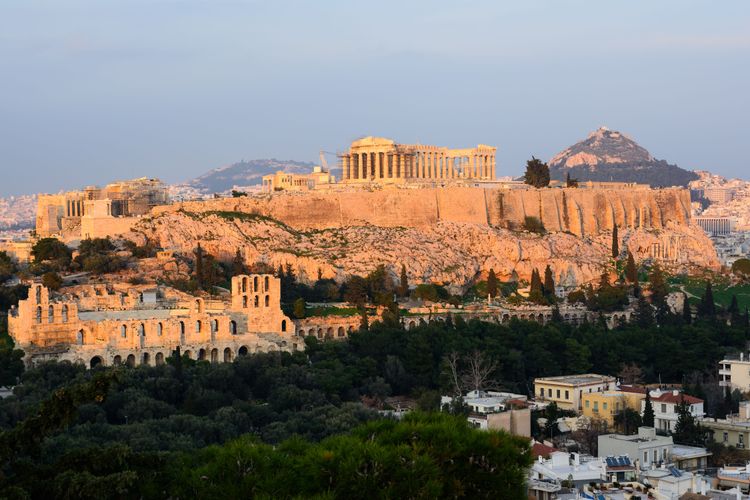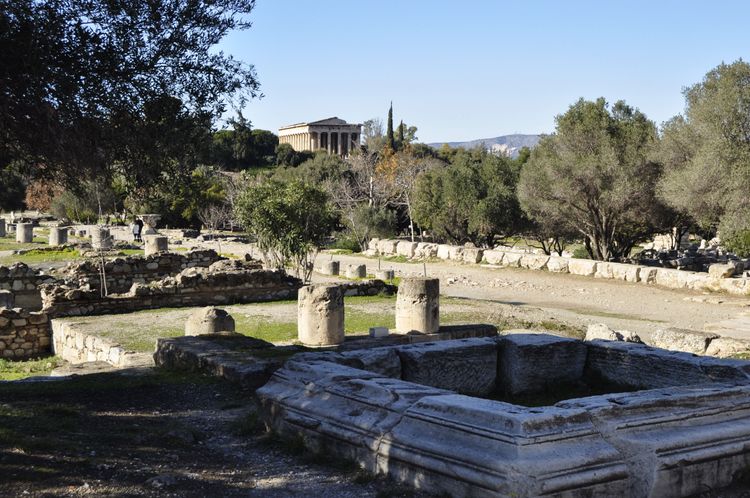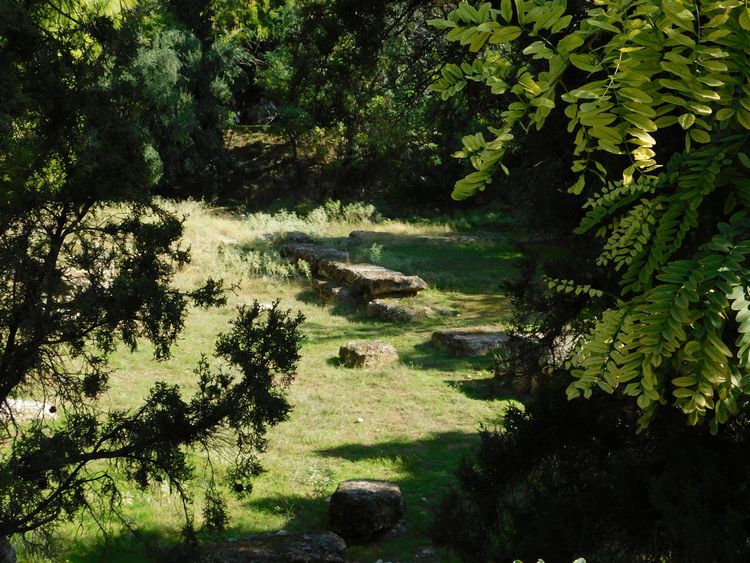Once you’ve made it to Athens, it’ll be time to check into your hotel. Once you’ve settled in a little, head out and explore the town in the evening. Take a stroll through the town centre and then along the Acropolis hill before heading towards your chosen dinner spot for the evening.
We recommend The Zillers for a perfect meal overlooking the Acropolis, the city’s most recognisable landmark. This vibrant restaurant offers a creative culinary experience that brings a fresh take on Mediterranean cuisine. With its impeccable rooftop, central location and diverse menu, there’s something uniquely exciting about dining at The Zillers. Be sure to make your reservations early to ensure you get a table.
Where are you checking into?
For this weekend getaway, we thought it would be perfect to base yourself right in the heart of the historic city. That means you’ll be staying 2 or 3 nights, depending on what sort of schedule works best for you, at the same hotel.
We really love the Niche Hotel Athens for an atmospheric and comfortable experience with epic views of the Acropolis and Lycabettus Hill. This contemporary yet cosy hotel provides every comfort visitors will be looking for, complete with a warm welcome and a vast selection of amenities.











